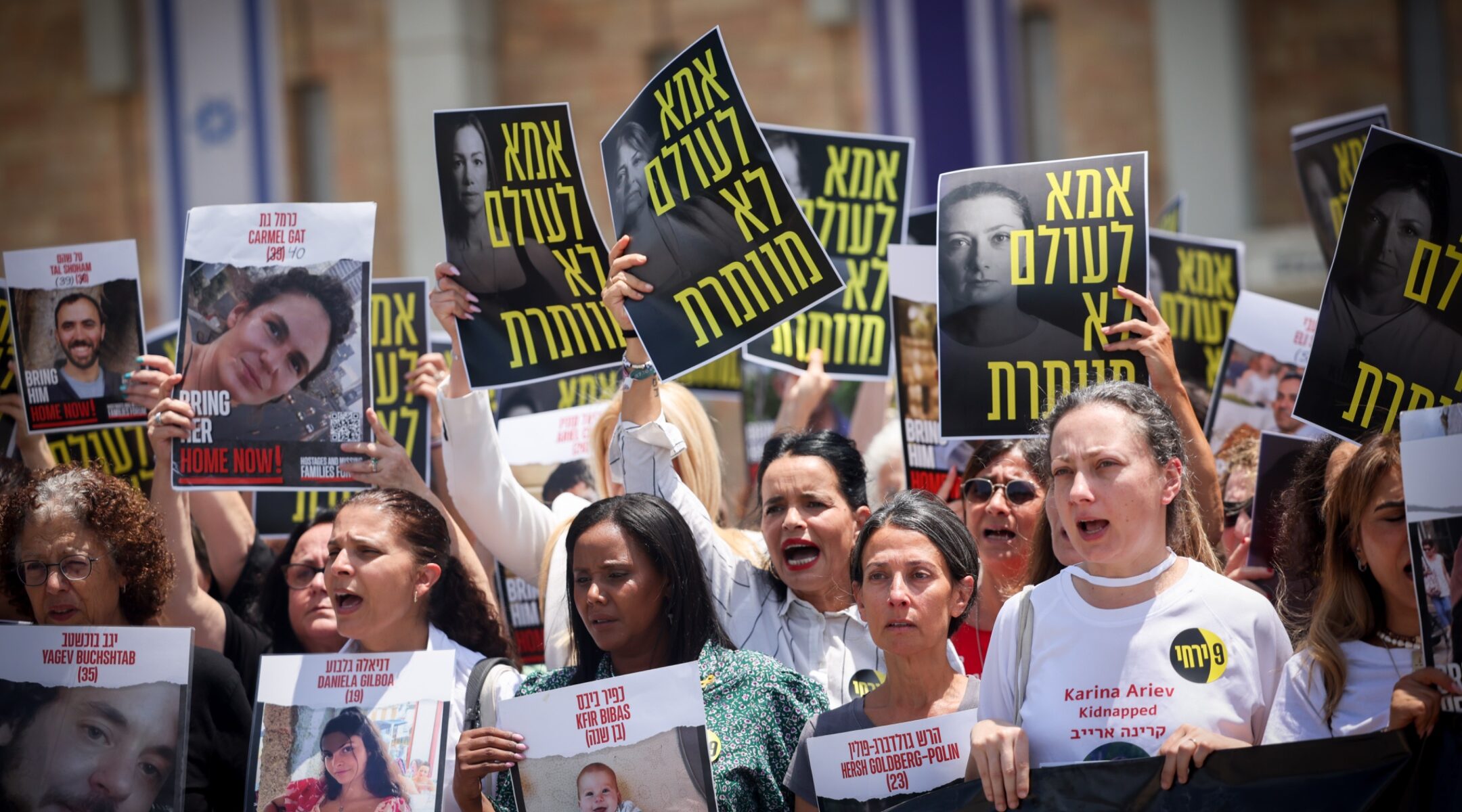Israeli Prime Minister Benjamin Netanyahu laid out conditions for a ceasefire deal with Hamas as pressure ramped up at home and abroad for an outcome that would bring home the more than 100 Israeli hostages held by the terror group in Gaza.
Netanyahu’s statement came days after Hamas put forward a new proposal for a truce of at least six weeks following successive rounds of failed negotiations. The new proposal, in which Hamas stopped demanding that Israel promise to end the war as part of a ceasefire, has kicked off a fresh round of talks.
Netanyahu demanded that Israel be allowed to resume fighting after the ceasefire; a halt to weapons smuggling from Egypt to Gaza; and that thousands of Hamas fighters not be able to return to northern Gaza. He also demanded that Israel be able to “maximize” the number of living hostages freed in the deal; more than 40 of those who remain captive are thought to be dead.
Hamas in a statement accused Netanyahu of “placing additional obstacles in the way of negotiations” and called on mediators to “put an end to Netanyahu’s manipulations.”
Netanyahu suggested that military pressure — including Israel’s invasion of the city of Rafah in southern Gaza — raised the chances of an agreement. “The Prime Minister’s steadfast position against the attempt to halt IDF action in Rafah is what has led Hamas to enter negotiations,” the statement said.
The list of demands reportedly took Israeli security officials by surprise, but it is one of several indicators that the Israeli appetite for a deal is high following nine months of war.
On Sunday, thousands of Israelis held massive protests, marching to Netanyahu’s residence and calling on him to accept the deal on the table. And President Isaac Herzog, a largely ceremonial figure who generally shies from overtly political pronouncements, said in a social media statement that it was time to come to a deal.
“The entire country wants the [hostages] returned, and a decisive majority is for the deal,” he said in Hebrew. “It is the state’s obligation to return them, and that is the heart of the consensus.”
The Hostages and Missing Families Forum, a group representing many of the captives’ relatives, demanded that Netanyahu delay a July 24 speech to the U.S. Congress until he has secured a deal.
“For 9 months, 120 innocent men, women, children, and elderly have been held captive in Gaza by Hamas,” the group’s statement said. “The hostages’ families are tormented each day by nightmares of sexual, psychological, and physical violence, as well as possible forced pregnancies. We implore Prime Minister Netanyahu to prioritize finalizing a hostage release deal before traveling to the US and addressing Congress.”
Netanyahu’s far-right coalition partners, meanwhile, objected to the proposed deal. “Either Hamas rehabilitates and regains its capabilities within two to three years, or we go all the way with the country’s determination and destroy Hamas,” Finance Minister Bezalel Smotrich wrote on X. “The time has come for the public to know the truth and the details of this dangerous deal.”
If Smotrich and National Security Minister Itamar Ben-Gvir, who likewise opposes the deal, leave Netanyahu’s government, it could force early elections, something the prime minister has tried to avoid.
The truce offer backed by the Biden administration includes a six-week period in which children, women, the elderly and the infirm are released in exchange for a ceasefire and the release of Palestinian prisoners. The sides would then negotiate the terms of the next six-week period, which would be aimed at a permanent ceasefire. Hamas and Israel last week said they were mulling the latest terms, and neither side rejected them outright.
The Israeli military establishment wants to shift its focus to Israel’s northern border, where clashes with Hezbollah in Lebanon are intensifying. That position is championed by the defense minister, Yoav Gallant, who is increasingly at odds with Netanyahu.
And fighting in Gaza is ongoing. On Monday, the Israeli military said it was beginning a new offensive in the north of the territory, where it had focused its fire at the beginning of the ground invasion.
JTA has documented Jewish history in real-time for over a century. Keep our journalism strong by joining us in supporting independent, award-winning reporting.






